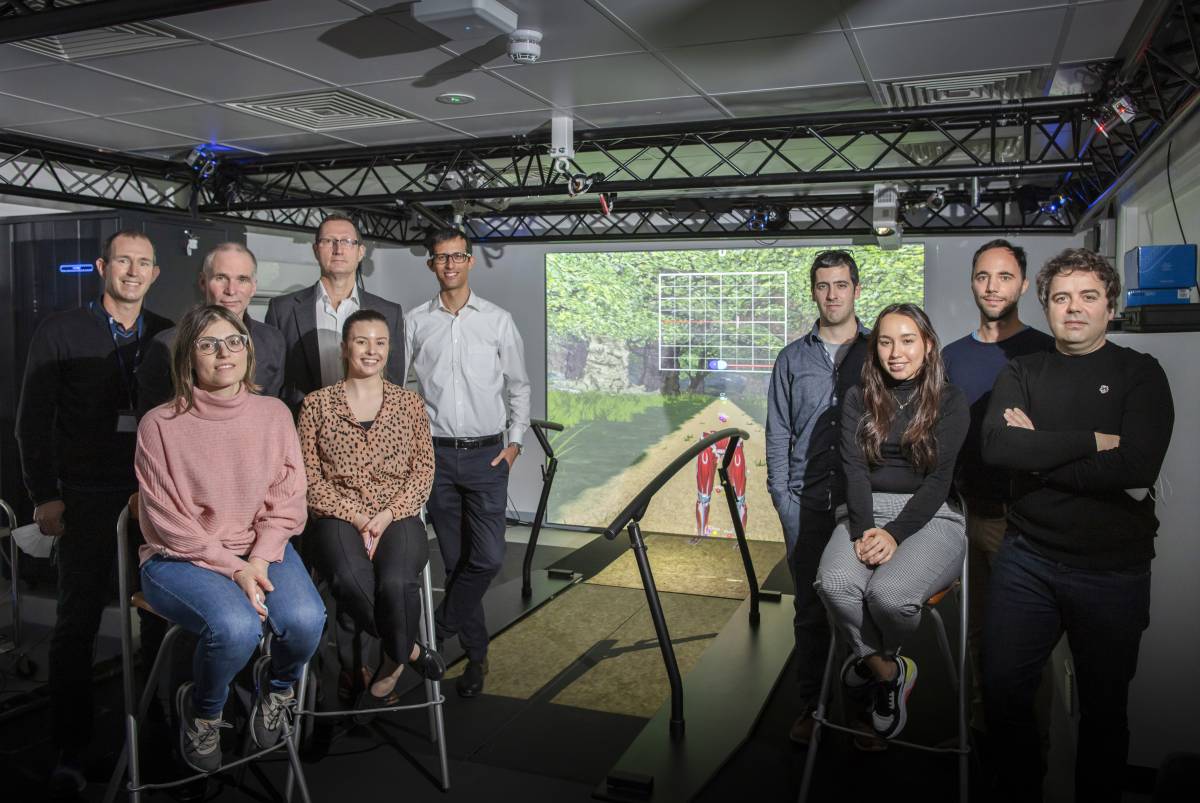Professor Jon Marsden, a physio by background, works on app to improve the lives of people with MS

Professor Jon Marsden, whose background lies in physiotherapy, is helping to develop an app for people with multiple sclerosis (MS) at the University of Plymouth’s Motor Control Lab in the Brain Research and Imaging Centre (BRIC), which he leads.
Jon Marsden, who is professor or rehabilitation in the university's school of health professions, said: ‘BRIC contains world-leading technology to understand human movement, behaviour and neurological conditions, and the Motor Control Lab is all about understanding how we control movement and functional ability and how it is affected by pathology.’
The smartphone app, which is called Floodlight MS, was originally developed by the Swiss-based international healthcare company Roche. It enables people with MS to assess their physical and cognitive function in between medical appointments. Clinicians can access recorded data that will inform their future conversations with users and aid clinical decision-making.
Professor Marsden, who graduated in physiotherapy at the University of Manchester in 1991, said: ‘We were pleased to collaborate with Roche on an innovative project to validate the Floodlight MS app and, as with everything we do in research, we look forward to seeing the product help people who need it most.'
World-leading technology
The Motor Control Lab contains world-leading technology that will enable Roche to test and validate the app’s accuracy, while continually feeding the results into product development. Floodlight MS collects data on hand function, walking ability, and cognition: areas commonly affected in people with MS.
Participants will be provided with mobile phones to use Floodlight MS, with researchers independently exploring if the measures recorded by the device are comparable to the measures of movement quality recorded in the lab itself, therefore ensuring that the app is working as intended.
We were pleased to collaborate with Roche on an innovative project to validate the Floodlight MS app and, as with everything we do in research, we look forward to seeing the product help people who need it most [Jon Marsden]
Licinio Craveiro, Roche’s principal global medical director for said: ‘Roche’s mission is to “do now what patients need next”, so we’re looking to design, build and test solutions to help people overcome some of the world’s biggest health challenges.
‘To do this, we need state-of-the-art technology and science at our fingertips, so we were delighted to be introduced to Professor Marsden and his team at the BRIC. We’re really looking forward to testing and moving Floodlight MS forward to help people with MS to manage their condition.’
Roche has a long-standing relationship with Professor Jeremy Hobart from the University of Plymouth, where the MS research group co-designs projects that help to improve the quality of life for people with the condition.
To find out more about the project, email: floodlight@plymouth.ac.uk
Share it with














